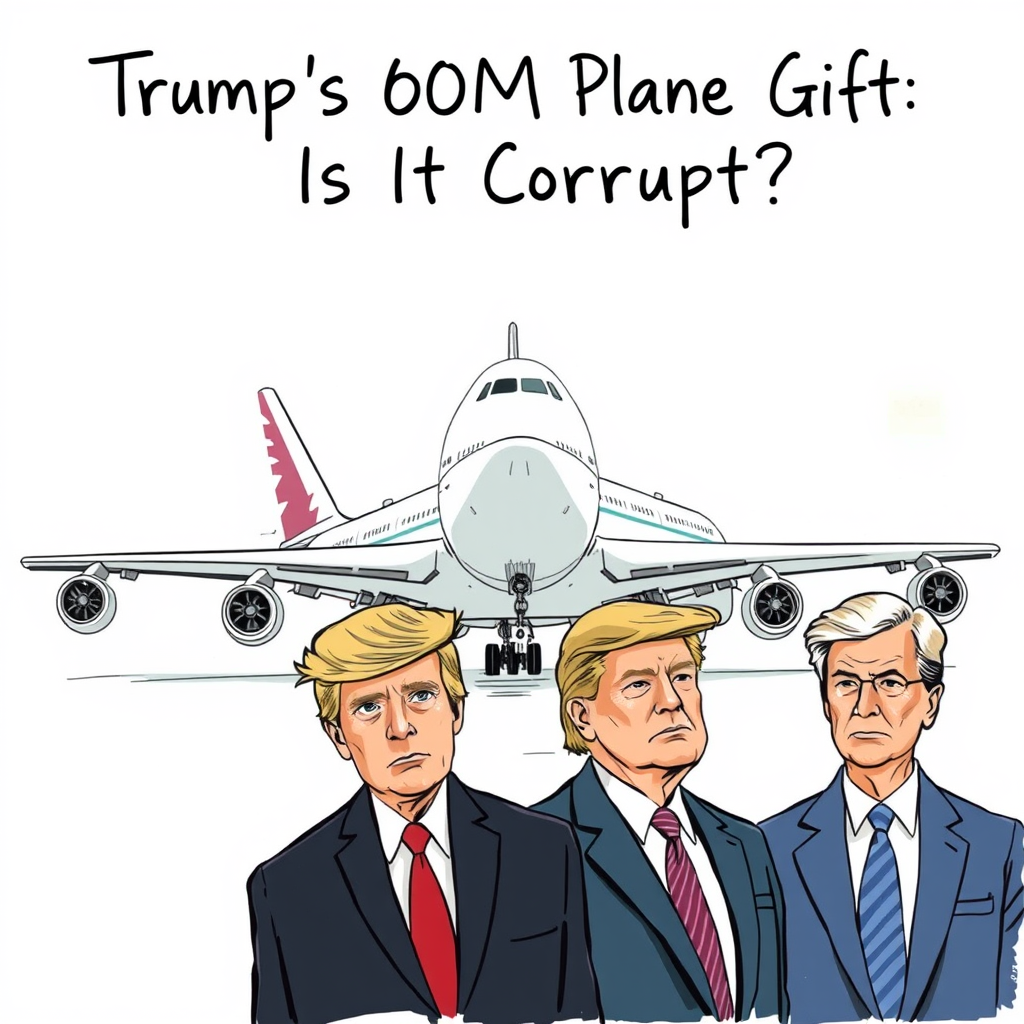Trump's $400M Plane Gift: Is It Corrupt?

On February 15, a Boeing 747-8 aircraft belonging to the Qatari royal family was spotted at Palm Beach International Airport, sparking a controversy that has gripped Washington. The aircraft, valued at around $400 million, was proposed as a gift to President Donald Trump to serve as a temporary Air Force One during his remaining time in office. Following his presidency, the plane would be donated to his presidential foundation, potentially allowing Trump to use it for personal travel.
The New York Times reported that while discussions about the proposal are ongoing, Trump has indicated his intention to accept the gift. However, he has stated that he would not use the plane once his presidency ends. This plan has drawn sharp criticism from Democrats, with Senator Ed Markey of Massachusetts labeling it ‘blatant corruption’ and accusing Trump of putting his personal interests above those of the country.
Trump, however, defended the proposal, arguing that declining the gift would make him a ‘stupid person.’ He claimed that the Defense Department would be receiving a free aircraft to replace the aging Air Force One, and criticized Democrats for insisting that the government pay for the plane. This defense has done little to assuage concerns, with some Republican senators also raising security and legal issues. Senator Shelley Moore Capito of West Virginia, for instance, highlighted the need to examine the constitutionality of the gift.
Presidents have long accepted gifts from foreign dignitaries and governments, ranging from symbolic gestures like the pandas given to President Richard Nixon by China to luxurious items like the $20,000 diamond presented to former first lady Jill Biden by India. However, the acceptance of such gifts is governed by strict laws to prevent undue influence. The Foreign Gifts and Decorations Act, for example, limits the value of personal gifts a president can accept, while the Constitution’s emoluments clauses prohibit presidents from receiving money or gifts from foreign governments without congressional approval.
The proposed $400 million plane gift raises serious ethical and legal questions. While past presidents have accepted gifts, the sheer value and potential for conflict of interest in this case are unprecedented. The fact that the Trump Organization has struck a deal to build a luxury golf resort in Qatar further complicates the matter, suggesting that the gift could be an attempt to curry favor.
Trump’s history of accepting extravagant gifts and his willingness to defend this proposal are deeply concerning. They suggest a president who is more than willing to accept lavish gifts, potentially creating conflicts of interest and undermining the integrity of the office. House Democrats have already called for a probe into the potential jet, with some arguing that it is unconstitutional. Even if Trump can find a legal way to accept the gift, the ethical implications are clear: accepting such a gift sets a dangerous precedent and raises serious questions about where Trump’s loyalties lie.
In conclusion, while the acceptance of foreign gifts by presidents is not new, the scale and potential conflicts of interest in this case are alarming. The proposed gift of a $400 million plane to President Trump is a clear example of the ethical challenges that can arise from such transactions. It is crucial that the American people demand transparency and accountability from their leaders to ensure that the interests of the country are always put first.